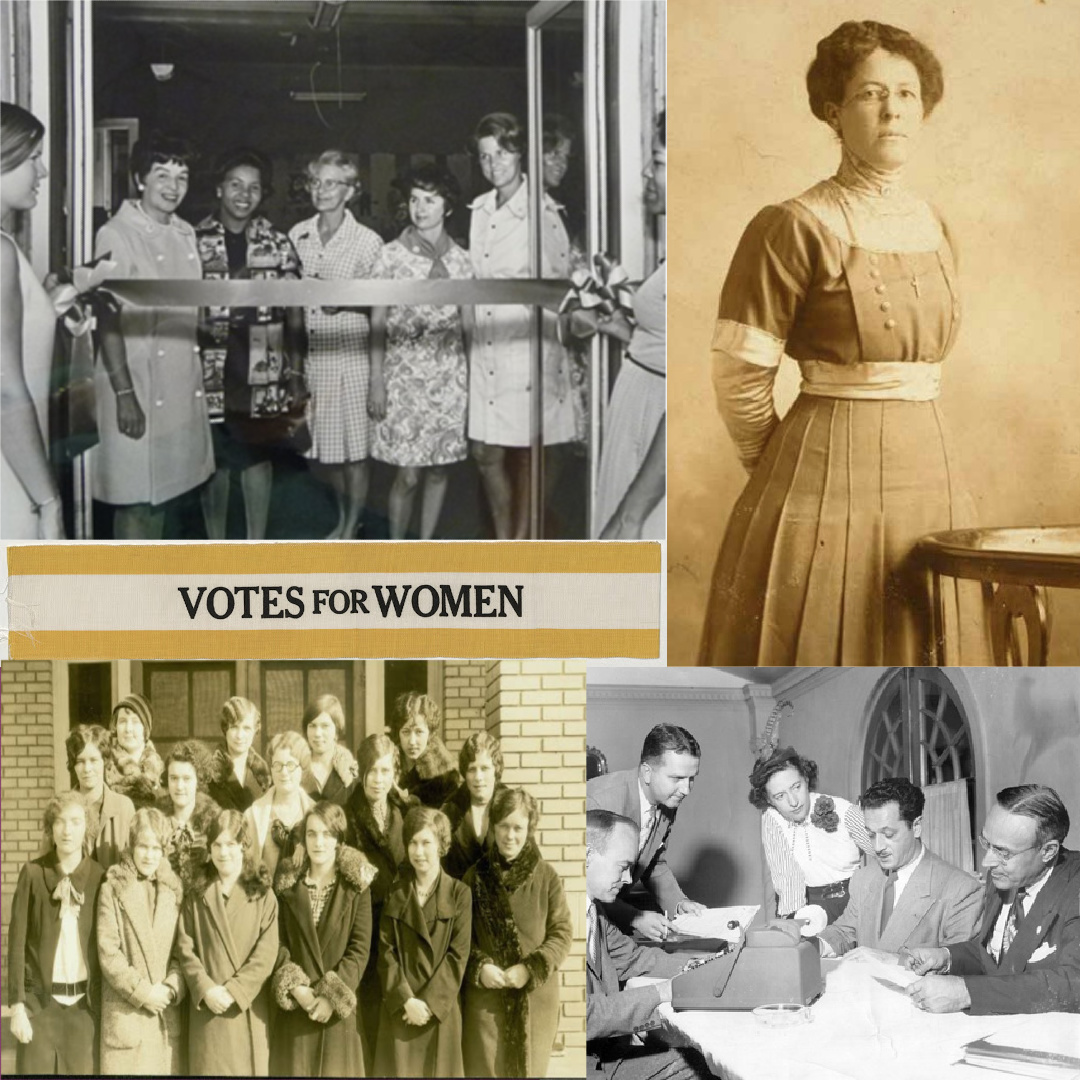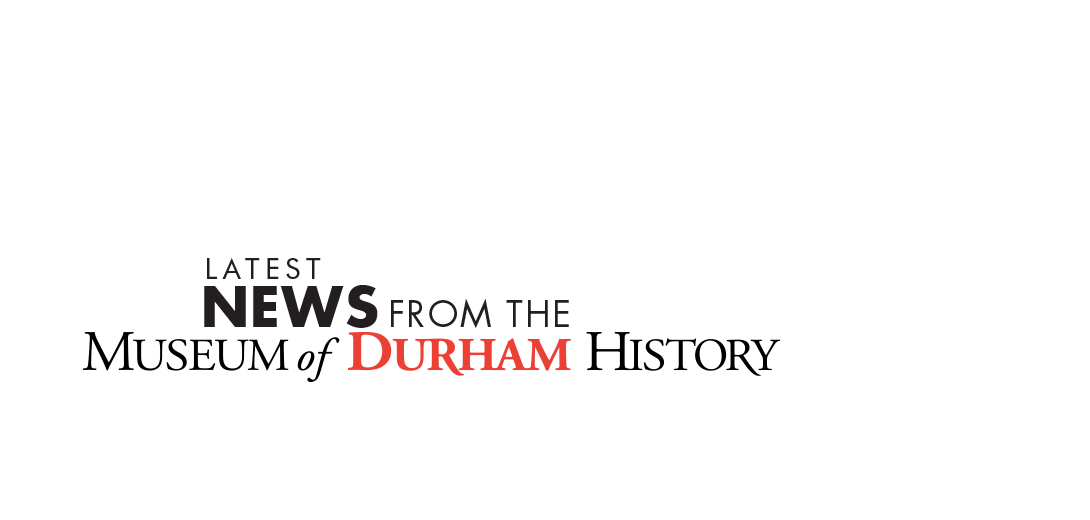Behind the Scenes: Digital Programming for “Votes for Suffrage”
Posted on September 29, 2020
Written by Kay Waller, North Carolina State University, Public History MA Student
I have had the privilege of working alongside Jeanette Shaffer and the Museum of Durham History’s events committee in planning programming and community engagement activities for the Votes for Suffrage: 100 Years of Women in Durham Politics digital exhibit. The exhibit was intended to commemorate the centennial of the ratification of the 19th amendment, granting women throughout the United States the right to vote. However, this was just the beginning of what would become the ongoing struggle for equality in the US. Factors like wealth, class, and race still played a significant role in limiting the types of people who could access the ballot, and, once there, the experience they might have casting their votes. This resource was designed to highlight the struggles that local women in politics have overcome, and the political victories shared by both elected officials and activists in the fight for equality.
The goals of the exhibit really speak to my own passions, but planning and curating are only one half of making a great museum resource accessible to the public. After making the tough call to move the exhibit entirely online, we began researching and planning ways to engage the local community, without having access to the museum space.
One of Durham’s many great qualities is the number of local businesses, artists, and organizations committed to encouraging community involvement. After a few calls and emails, we were in touch with state archives and newspapers, non-profits, artists, and congresswomen who were all willing to help take this digital exhibit to the public; at this point encompassing even larger audiences than would have been possible with an in-person exhibit. Through researching local events, digital resources, and community outreach initiatives, I was able to help plan and orchestrate a suffrage inspired virtual art tutorial, a lunch and learn style lecture with the League of Women Voters, and a live-streamed digital exhibit opening, each highlighting the unique features of women in Durham politics. These events all feature a wide range of local women, each using their own unique skills, passions, and positions to help strengthen the voice of women in politics.
The women featured in these events highlight a wide range of individual experiences, and the events are designed to celebrate the differences and the lived experience of women and other marginalized genders. They utilize the arts, legal knowledge, and strength-in-numbers to encourage community participation in politics, especially moving into the 2020 election season.
At the outset of the 2020 COVID-19 pandemic, it seemed like an odd time to be accepting a public history internship—especially one that was primarily focused on planning museum events and programs. Further, by the end of May 2020, the city of Durham was witnessing large scale protests regarding race relations in the United States, marking what is sure to be a historical moment of local activism and political involvement. With the museum’s physical exhibits closed and the “Votes for Suffrage” exhibit on the horizon, there were all sorts of questions circulating about the idea of access and of presenting lived history, especially given the unprecedented times we were (and are) living through. The exhibit incorporates historical themes related to combatting inequality and weaves them into a narrative of inspiring current generations to find their own voices in politics. It also serves as a reminder that we are all in fact living through and transforming history in our own ways.
The challenges presented by the political and public health moment we are living through were far outweighed by the message of hope and celebration that went into planning the exhibit and the programs that would help engage our audiences. In fact, these different factors made planning a digital, accessible exhibit seem all the more relevant, exciting, and necessary.

